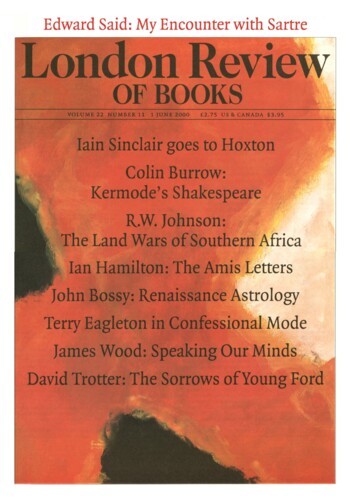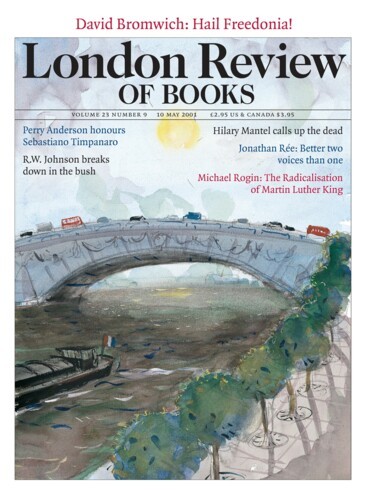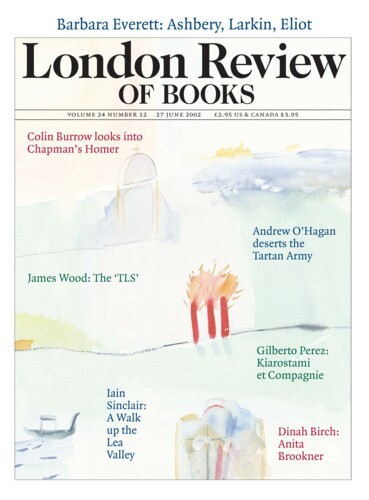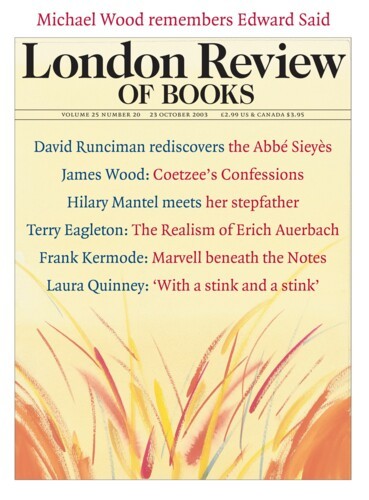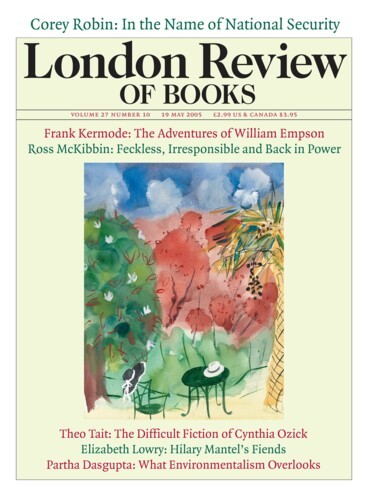Manufacturing in Manhattan
Eric Foner, 1 June 2000
After a period when it mainly conjured up images of street violence and urban deterioration, New York is once again America’s number one tourist attraction, and neighbourhoods long in decline are undergoing remarkable revivals. To be sure, a few blemishes mar the renaissance: the periodic killing of unarmed black men by the police, for example, or the persistent failure of the public...
